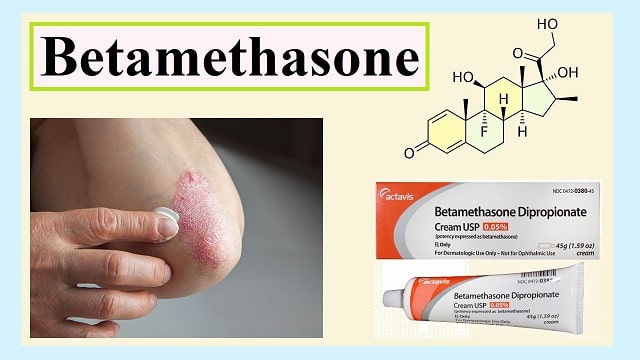Betamethasone is a very powerful steroid that prevents the release of substances in the body that cause inflammation. Betamethasone topical (for the skin) is used to treat inflammation and itching caused by a number of skin conditions such as eczema or psoriasis.
Benefits of Betamethasone Topical
Betamethasone topical has benefits for treating skin inflammation, such as allergic reactions. This drug works by activating natural compounds in the body to relieve symptoms of inflammation, such as redness and swelling of the skin.
Betamethasone Topical Dosage
The dosage required will be adjusted to the condition of the sufferer. In general, here is the dosage for using topical betamethasone:
Allergic Reaction Sufferers
- Adults: Apply to the affected area 1-2 times daily.
Psoriasis sufferers
- Adults: Apply to the inflamed area 1-2 times daily. This medication can be used for up to 4 weeks.
How to Use Topical Betamethasone
Use this medication on your skin only. However, do not use it on your face, groin, or underarms unless directed by your doctor. Wash and dry your hands before use.
Clean and dry the affected area. Apply a thin layer of the medication to the affected area and gently rub in, usually 1-3 times daily or as directed by your doctor. Do not bandage, cover, or wrap the area unless directed by your doctor.
After applying the medication, wash your hands unless you are using this medication to treat your hands. When applying this medication near the eyes, avoid getting it in your eyes because it may worsen or cause glaucoma. Rinse immediately with water if the medication gets in your nose or mouth.
Use this medication only for the condition for which it was prescribed. Do not use it longer than prescribed. Tell your doctor if your condition persists or worsens after 2 weeks.
Cautions for Using Topical Betamethasone
Before using this medicine, you should first discuss your previous medical history with your doctor, especially if you have the following conditions:
- Tell your doctor if you are taking any other medications, including vitamins, supplements, and herbal products.
- Having diabetes.
- Having an immune system disorder.
- Suffering from blood flow disorders.
- Suffering from kidney disorders.
- Suffering from liver disorders.
- Having a skin infection.
- Having psoriasis, which is an inflammation of the skin characterized by a red rash, dry, thick, scaly skin that peels easily.
- Suffering from rosacea, a skin disease that attacks the face and is characterized by reddish skin, the appearance of solid bumps containing pus, and visible blood vessels on the nose, cheeks, chin, or forehead.
- Having a lot of acne in certain areas.
- This medicine is not recommended for children under 12 years of age, without permission from a doctor.
- Long-term or excessive use of topical betamethasone can increase the risk of adrenal gland disorders.
Betamethasone Topical Side Effects
The side effects of using the drug will depend on the condition of each user. In users of this drug, the side effects that may appear include:
- Skin irritation.
- Dry skin.
- Reddish skin.
- The skin feels itchy and hot.
- Swelling in the area.
- Skin rash.
- Stretch marks.
- A lump in the area that contains pus.
Betamethasone Topical Interactions
Drug interactions may change how your medications work or increase your risk for serious side effects. Keep a list of all the products you use (such as prescription/nonprescription drugs and herbal products) and share it with your doctor or pharmacist.
Do not start, stop, or change the dosage of any medicines without your doctor’s approval. Drug products that may interact with this drug include corticosteroids taken by mouth, such as methylprednisolone.
Betamethasone Topical Contraindications
Do not give this medicine to people who are hypersensitive to corticosteroid content. Also avoid this medicine in people who must be vaccinated, such as people with varicella infection, people with skin TB, or people with viral and fungal infections.
